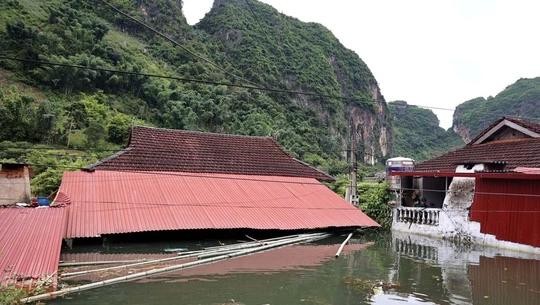
According to the assessment by the Department of Preventive Health under the Ministry of Health, during and after heavy rains, storms, and floods, the carriage of disease-causing microorganisms by floodwaters to many areas causes environmental pollution posing infection risks.
Floods can create favorable conditions for vector populations to thrive, such as increased standing water and displaced human and animal populations, leading to the risk of vector-borne disease transmission.
Common diseases during the rainy season include acute diarrhea, respiratory infections, conjunctivitis, skin diseases, dengue fever, and influenza.
Weather forecasters said that this year’s rainy season will continue, so to prevent disease outbreaks, health agencies and individuals should strictly follow the Ministry of Health’s recommendations regarding personal hygiene, environmental sanitation, and food safety.
After heavy rains or floods, proactive environmental hygiene measures should be taken, ensuring that wherever floodwaters recede, environmental sanitation follows. Proper waste disposal and the use of lime powder or chemicals for animal carcass burial can prevent the spread of infectious diseases. Additionally, coordination with healthcare personnel for insecticide spraying in high-risk areas is essential.
Household owners should also actively maintain environmental hygiene in their living areas, disinfect well water and household water according to health worker guidelines, and ensure food safety by cooking thoroughly. Anyone experiencing symptoms of illnesses should seek medical examination and treatment at the nearest healthcare facility.
























